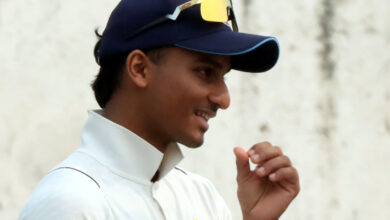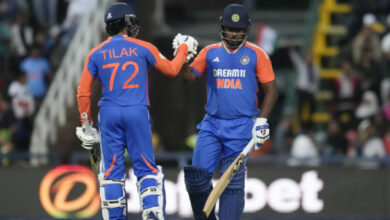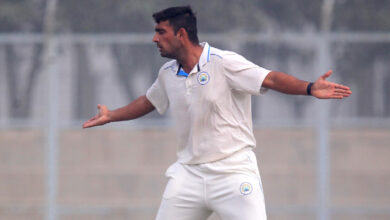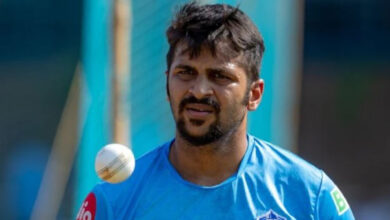Ding Liren in bad form still very strong
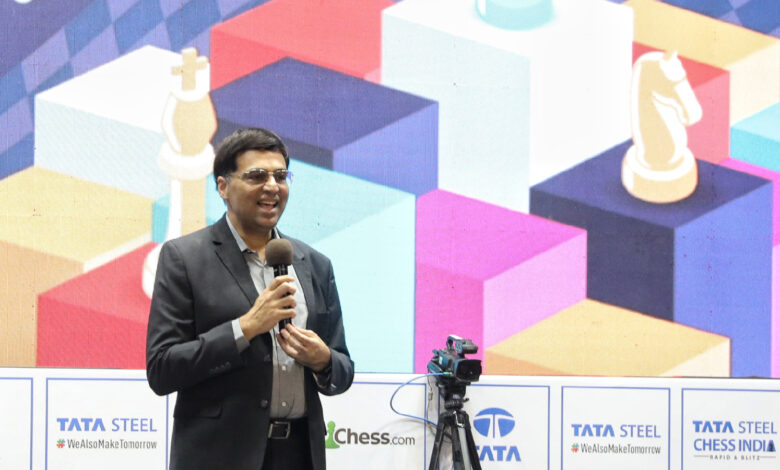
In less than 10 days from now, 18-year-old Gukesh will begin his audacious bid to become the youngest ever world champion. To do so, he will have to prevail over the current world champion Ding Liren, in a battle where everyone — including Ding — seems to have already installed the Indian teenager as a favourite. But with the world chess championship, there is seldom anything that’s obvious, as five-time world champion Viswanathan Anand can testify.
In a freewheeling interview with The Indian Express, Anand spoke about what makes Gukesh stand out, his own role in shaping Gukesh’s career and the need to block out outside noise about pre-event favorites and form. Excerpts.
With Gukesh, one of the things that the world has noticed is that he seems to be the most mature 18-year-old around. He’s very serious, very focused.
Viswanathan Anand: He has shown at several clutch moments a certain amount of calm. That certainly suggests that he is very, very mature for his age. Having said that, everybody gets tested multiple times. And this will happen to him as well. There will be moments which are difficult. There’ll be setbacks. That’s quite normal. But during the Candidates, during the Olympiad, there are places where he showed that he’s fully there, he’s really focused and he can really raise his game. And at the Candidates, it was important to be as cool as he did and take some of the decisions he did. So that, again, it’s a promising sign, right? I mean, there are many things you do that other people have done before, but becoming a challenger at the age of 18 really sets you apart because it’s just not been done.
As someone who has mentored him through the Westbridge Anand Chess Academy (WACA) and has had a role in shaping up his career, what are the factors that went into him becoming a world championship challenger at 18?
Viswanathan Anand: At WACA, we set up a plan for Gukesh to become a stronger player. That the Candidates win happened this year is a phenomenal bonus. He peaked at the right moment. It was brilliant. He showed the maturity to take the prize after all. But he himself, his parents, his other coaches, they’ve all brought him up with the right values. He has this ability to block out unhelpful stuff. He’s generally very well behaved. There are healthy values instilled in him.
Westbridge is supporting him as a sponsor for this World Championship cycle. So obviously, they help him with whatever kind of coaching he needs to do, whatever resources he needs. Really, full support. Essentially two years ago, when he just started to break into the top, I felt that what he needed now was a top openings trainer, somebody who could help him with that and I connected him with Grzegorz Gajewski. That partnership has worked out brilliantly. They not only kind of need each other, they’re complimentary in a nice way. Gajewski continues to be his trainer to this date. And I think with me, Gukesh and I have had conversations (about the match), we talk about some experiences during a match, things like that.
File image of World Chess Championship contender Gukesh at the Tat Steel India Chess Tournament in Kolkata in 2023. (Express Photo Partha Paul)
What were the things that you told him from your own experience of playing in the World Championships?
Viswanathan Anand: Simply about the unexpected moments. When things don’t go according to plan, the turmoil in your head, these are the kinds of things that I spoke about. It’s more of a natural conversation where you describe that, on some days, nothing happens at all. You go there, it’s a normal day, you come back, it’s a normal day, it may not even have been a match day, but on another day, there are some experiences that are unique.
How much should we read into the form that Ding has had going into this World Championship? Will that be a factor?
Viswanathan Anand: Look, a lot of very important and strong players have read something into it. I mean, Hikaru Nakamura, for instance, referred to it. There’s no doubt that a year of bad form before an important match does matter. It does show something. You don’t know if this form will continue or this is the moment that Ding is going to break out of it. And you know that Ding is a strong player anyway. Even Ding in bad form. If this constant focus on his previous form lowers your guard even slightly, he’s strong enough to punish you. So my point is, a player should not be thinking about these things. He should go there and play the best move. To be honest, Gukesh didn’t even ask me this question. He himself has come to the right conclusion. ‘I will go there, make the best moves and I’ll see what happens’.
When you played in your first world championship, did you ever experience those sorts of feelings, like nervousness and the feeling that suddenly you had prepared for something else, but this battle was something else altogether?
Viswanathan Anand: Almost every day, you’ll have moments of doubt. You’ll have moments when you think things are going to go great. Your opponent will morph into all sorts of things that he’s not. You’ll have an opponent and you’ll think, well, what if today my opponent was able to show this side or do that or thing. So you’re constantly dueling with your thoughts. Yes, you will panic, you will think there’s something about the stakes that makes you want to get it over with. And that itself is a dangerous attitude.
Was this a sense that you only had during your first world championship or even in later ones as well?
Viswanathan Anand: The doubt comes in every match. I mean, there are moments in every match where I thought this is the end and then I thought this is going great and things like that. But with each subsequent match, you realize these thoughts are normal and you know that they come, they go. And you focus more on the job. So I think like anything that you experience once or twice, you do it in a matter of routine, but same problem. When you do it for the third or fourth time, the problem is not routine, but motivation. How do you get excited about it? So you have to be able to do both.



